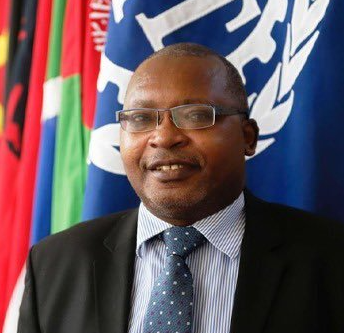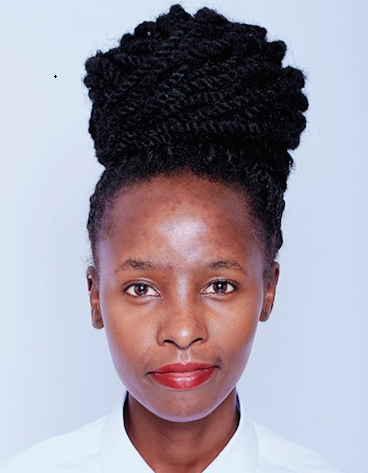The importance of capacity building on the role of youth in the blue economy in african sids
The importance of capacity building on the role of youth in the blue economy in african sids
Lessons from the Knowledge-sharing Forum
Photo © ILO
Youth are the driving force behind innovative solutions in the Blue Economy. To harness this potential, the ITCILO and ILO, in collaboration with WWF and the Global Youth Biodiversity Network, hosted the Knowledge Sharing Forum (KSF) to empower young leaders in African Small Island Developing States (SIDS).
This unique experience for youth and decision-makers took place from November 13 to 16, 2023, aiming to raise awareness and enhance capacities for the Blue Economy, including policy alignment and inclusive finance mechanisms.
Key forum highlights
The three-day online KSF that prioritized the role of youth in the Blue Economy in African SIDS concluded with several key contributions.
A major focus was on creating accessible financial mechanisms, ensuring that young people are seen as serious candidates for funding opportunities essential for driving their innovative ideas in the Blue Economy.
Innovative ideas often require financing, especially in the context of proposals for a blue economy, many of which originate from young people who view them as potential entrepreneurship opportunities. Similarly, some ideas need technological resources to implement them. All the potential and the roles they could play could not be achieved to their full potential without institutions and funding mechanisms that qualify them as suitable candidates to receive them.
Frederick Muia,
Director, ILO Country Office for Madagascar, Comoros, Mauritius and Seychelles
As the newly appointed ILO director in the Indian Ocean Islands of Madagascar, Seychelles, Mauritius and the Comoros, the blue economy is very critical to us. We need to ensure fair labour practices and decent working conditions in the new blue economy which include job opportunities, particularly for the youth. I'm also pleased that the youth was a critical element in the KSF, since we need to build strong consensus among the tripartite constituents on the policy options on how to conduct a Just Transition to an inclusive (no-one left behind) and job-rich blue economy and give a voice to all the stakeholders.

The Forum was also a real catalyst for increasing the commitment of multiple organizations such as, Pan-African Youth Organization for the Blue Economy (OPJEB), Global Youth Biodiversity Network, WWF Africa Adaptation Hub, among others, on serving the youth of SIDS.
In this context, participants endorsed capacity building as a cornerstone for promoting the role of youth in the blue economy in African SIDS, including several modalities in which decision makers could work to promote and expand the role of youth in the Blue Economy. Impacts can range from online knowledge-sharing forums tailored for decision makers, like this one, to resources designed specifically for young professionals and youth.
Participant testimonials
Living in an archipelago totalling 4,033 km2 and an exclusive economic zone extending over 730,000 km2, this training was important and of great interest. It was an opportunity to learn about important topics, to listen to experiences from other countries, where I came away more qualified due to the excellence of the information transmitted.
Fatima Lima
Technician of the Ministry of Health of Cabo Verde
The role of youth
Youth in African SIDS are disproportionately affected by climate change due to multiple factors such as their high exposure and vulnerability to climate hazards, and some traits that increase this condition: strong dependency to natural resources, limited access to resources such as finances and information, lack of alternative livelihoods and incomes; among other.
The following main three areas can be positive affected by the intervention of young leaders:
The KSF in numbers
The participation of 42 short-listed and selective participants included: 15 decision makers (including 8 from African SIDS), 9 UN office specialists, 10 members of academia and 5 from the private sector. Within these outstanding participations, 11 came from the youth community (under age 35).
Esther Maine
Global Youth Biodiversity Network
Capacity building that emerged key during the forum’s discussion is necessary as it equips youth with the knowledge and skills necessary to drive positive change. By fuelling creativity, it ensures youth can unlock investments and contribute meaningfully to providing solutions at the intersection of meeting people’s needs and addressing the challenges facing our ecosystems through science, policy, innovation, and entrepreneurship. The forum’s emphasis on capacity building as a priority action aligns with the broader need for comprehensive, inclusive, and informed approaches that empower youth in navigating the complexities of the blue economy sectors.

The path forward
One of the main messages of the forum was that young people must have access to financing. This not only means that they should be considered access to them as a mere formality, SIDS face acute challenges from climate change, requiring immediate and sustained action. Young leaders are essential to driving a sustainable future, and the ITCILO is committed to supporting these efforts through targeted capacity building programmes.
Be part of the change
Join the movement for a sustainable Blue Economy! If you're passionate about empowering youth and driving change, enrol in our upcoming online training course: Role of Youth in the Blue Economy in the South-West Indian Ocean: https://www.itcilo.org/courses/role-youth-blue-economy-south-west-indian-ocean.
To stay updated about these and other climate or nature initiatives at ITCILO, visit the Development and Investment webpage or write to us at: climate_nature@itcilo.org.


